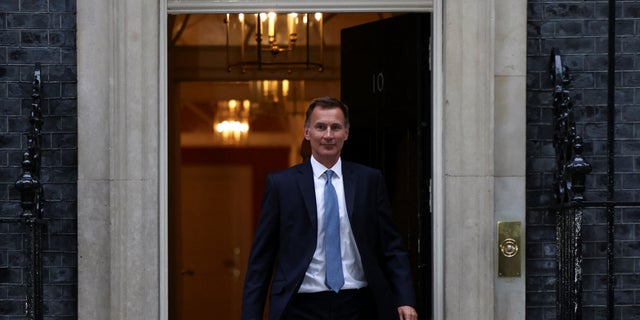British prime minister fires top economic official in ruthless response to ‘mini-budget’ backlash
British Prime Minister Liz Truss will move to reshape her government’s economic policy after firing Chancellor of the Exchequer Kwasi Kwarteng and dropping key parts of her economic plan in response to market panic caused by the proposed “mini-budget.”
“After the fallout from the mini-budget, the Prime Minister needed to take drastic action to calm the markets and save her job,” Alan Mendoza, executive director of the Henry Jackson Society, told Fox News Digital. “Sacking the architect of the policy, while brutal, was the most logical way to restore confidence and give her some breathing space to regroup politically.”
“Once [Truss] reached that conclusion it was only a matter of time before she acted on it, as had she not, it would now be her head on the platter rather than his,” Mendoza added.
The British pound dropped sharply after the government announced Kwarteng’s “mini-budget,” a series of cuts to taxes intended to spur growth and fight record inflation. The program proved contentious, and Kwarteng did not explain how the government planned to fund the cuts and offset the costs.
UK HITS RECORD 7M CITIZENS WAITLISTED FOR ‘ROUTINE’ HEALTH CARE UNDER STATE-RUN SYSTEM
“We need a new approach for a new era, focused on growth,” Kwarteng told lawmakers in the House of Commons when he introduced the plan, which he argued would provide short-term help for homes and businesses in the face of spiking energy costs while trying to increase tax revenues in the coming years.
The market reacted strongly and negatively to the mini-budget and saw the pound’s value drop to record lows – at one point seeing the pound equivalent to $1.07, the closest Britain’s currency has come to parity with the dollar after beating a 37-year record low of $1.10.
ANTI-OIL ENVIRONMENTALISTS POUR TOMATO SOUP ON VAN GOGH ‘SUNFLOWERS’ PAINTING
Kwarteng had met Truss for “crunch talks” about the plan, but ultimately Truss decided that parting ways with the plan’s key architect would prove the wisest move, and Kwarteng agreed, according to the BBC.

His departure after 38 days makes Kwarteng the second shortest-serving chancellor. Foreign Minister Jeremy Hunt, who has twice run for leadership of the Conservative party and failed to win the post, has taken over as the new Chancellor of the Exchequer.
UK BUSINESSMAN ARRESTED FOR ALLEGEDLY HELPING RUSSIAN OLIGARCH EVADE SANCTIONS
In a letter to the prime minister, Kwarteng said that Truss had the “right” vision for how to fix the economy, and he would remain a staunch supporter.

“As I said many times in the past weeks, following the status quo was simply not an option,” Kwarteng wrote in his letter. “For too long this country has been dogged by low growth rates and high taxation – that must change if this country is to succeed.”
However, a step Truss plans to make is to drop the business tax cuts she had proposed as part of the budget. She remains under great pressure to scrap more of the cuts she proposed as the Bank of England tries to combat the economic crisis facing the country.
Reuters and The Associated Press contributed to this report.
Read the full article Here


